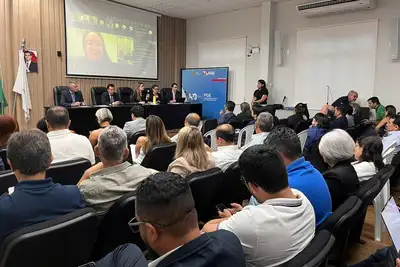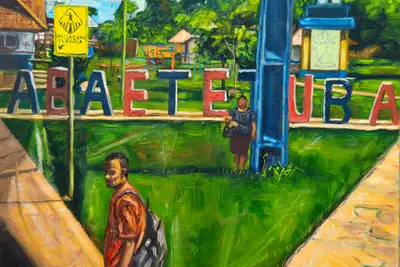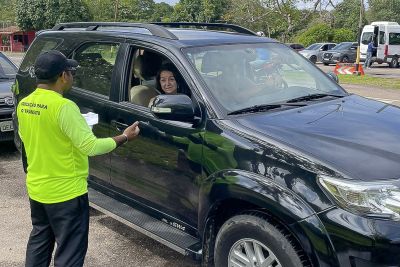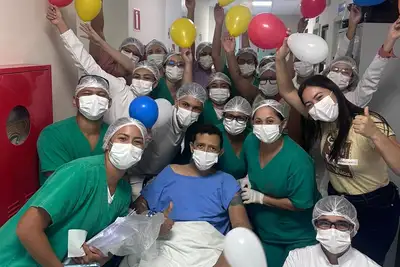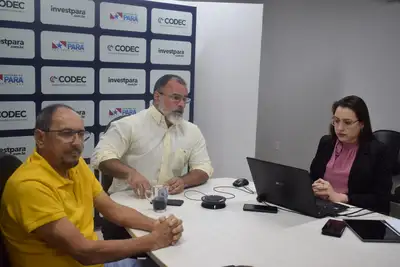Uepa promotes the inclusion of deaf individuals through culture, poetry, and inspiring examples
Composed of deaf and hearing students, the choir "Mãos em Melodia" enchants audiences by translating Pará songs into Libras. On National Deaf Day, the university also highlights the journey of Professor Jaqueline Miranda and the importance of the Libras Letters course as a reference in the Amazon.
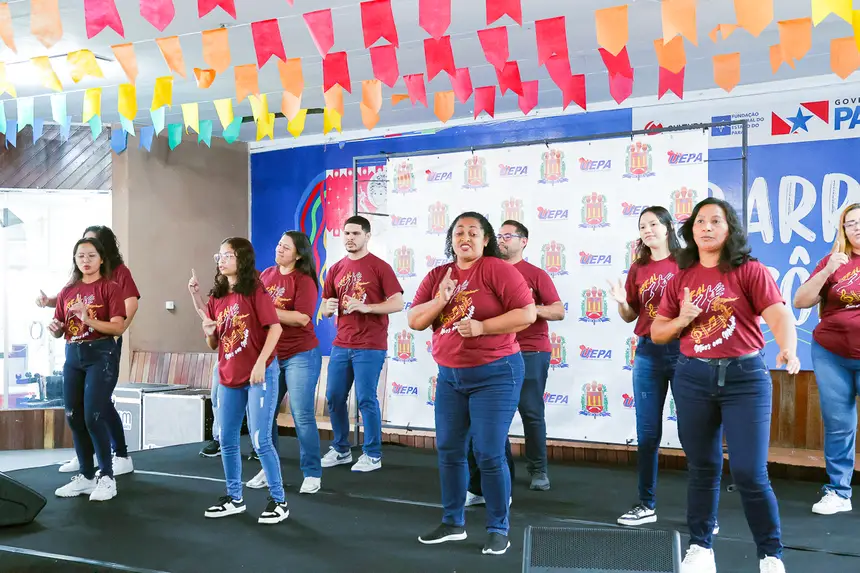
The audience eagerly follows as the song "Voando pro Pará" by singer Joelma begins to unfold in a new way. Suddenly, the popular Pará song, so well-known to the ears, comes to life in the hands and bodies of deaf and hearing students from the choir "Mãos em Melodia" of the Libras Letters course at the State University of Pará (Uepa). The music is not just heard: it is seen, felt, and translated into shared emotion.
The audience immerses themselves in that experience. Some clap along to the rhythm, while others are surprised by the poetic strength of Libras. On the students' faces, the joy of interpreting not just words, but entire stories. On this September 26, National Deaf Day, the scene becomes a symbol of how inclusion and culture can walk hand in hand, transforming the university into a more plural and accessible space. But not only that. The University becomes the place where professionals like Jaqueline Miranda find their space of prominence and work towards the advancement of bilingual education in the Amazon.
The choir "Mãos em Melodia" is one of the most exciting projects at Uepa. Composed of deaf and hearing students, under the direction of conductor Lorena Ratis, the group was born from the Visual Literature course and grew as an extension action. "The choir started when we translated a song into Libras and presented it at a poetry event. The audience was moved, and we decided to continue. Today, 'Mãos em Melodia' consolidates itself as a strategic extension action, promoting the appreciation of sign language and deaf culture," explains Lorena. The methodology involves studying lyrics, translating into Libras, poetic experimentation, and rhythmic adaptation. "Many ask: what does a deaf person do in a choir if they can't hear the music? The answer lies in the story that the music tells. When they understand the lyrics, they interpret in Libras with emotion and poetry. It is not just about signaling words; it is about conveying feelings," she observes.
The repertoire favors Pará music, with carimbós, guitarradas, and bregas that are part of the region's cultural identity. The choice is not random: by interpreting these songs, deaf and hearing students reinforce ties with local culture, connect with family stories, and make the experience even more meaningful. The choir has also performed at events inside and outside Uepa, showing how art can be a powerful path for the dissemination of Libras and for raising societal awareness.
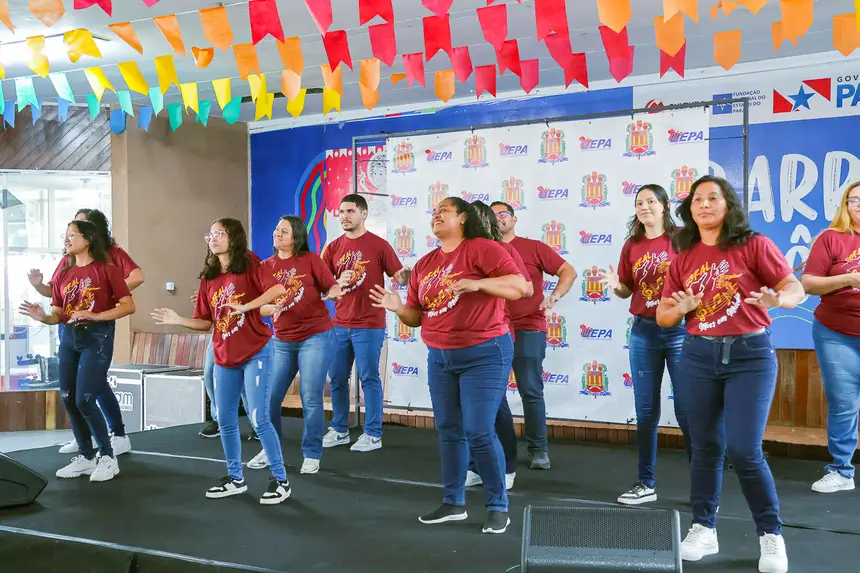
Among the inspiring examples found at Uepa is that of Professor Jaqueline Miranda, a deaf oralist and effective faculty member of the Libras Letters course. Her childhood dream was to be a veterinarian, but linguistic obstacles changed her path. "With so many linguistic barriers imposed on deaf individuals, I ended up changing my professional focus and decided to try teaching. Soon I found my place, and today I am a professor at a public higher education institution, a strategic space to train future educators prepared to deal with communicative diversity in the classroom," she shares. For her, Brazil has made progress in inclusion policies, but there is still a need to increase the presence of qualified professionals. "Although deaf individuals have gained space in various social environments, the absence of sufficient professionals to ensure linguistic accessibility in Libras is still noticeable. We need to expand the training and action of these professionals," she warns.
This appreciation of Libras is at the heart of the mission of the Libras Letters degree program at Uepa, a pioneer in the North region. Established in 2011, the program has already graduated 216 professionals, both deaf and hearing, and currently has over 280 students in Belém, Marabá, and other municipalities such as Marituba, Portel, Cametá, and Igarapé-Miri. The impact of this training is significant: most graduates continue their studies in specializations and master's degrees, meeting a growing demand for teachers and interpreters in schools and universities in the region. "The Libras Letters program plays an essential role in training professionals who work in both teaching and research and extension. Projects like the choir 'Mãos em Melodia' are examples of how the university articulates art, education, and inclusion to value deaf culture and disseminate Libras," says the program coordinator, Professor Rita Almeida.
The importance of bilingual education is also highlighted by the students. For hearing student Suellen Santos, who dreams of becoming a teacher, the date is a call to collective action. "National Deaf Day is an opportunity to value the rich culture and identity of the deaf. Bilingual education is essential to ensure access to knowledge, respecting Libras as the first language. We need to invest in the training of qualified professionals committed to quality bilingual education," she advocates.
Officially established in Brazil in 2008, National Deaf Day refers to the creation of the first school for the deaf in the country in 1857. More than a celebration, the date seeks to give visibility to the historical struggles for accessibility, bilingual education, and recognition of Libras as an official language. At Uepa, this movement translates into trajectories, projects, and achievements that point to a more inclusive future.


